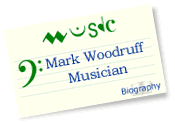

|
| Budgeting for music |
| A deeper, wider musical context |
| Only the greatest beauty will do |
| Music in every church |
| The
Church and a new music |
Music in every church
I am not in a position to put forward a blue-print. Some of you may already have suspected that I am being a little bit of a fogey, but I am just concerned at a lack of vision at the possibilities. These can only be taken up according to the talents and resources and circumstances that each person and situation is presented with. But I do suggest that the churches have a crucial role to play in making education, especially Religious Education, breathe and thrive with music, the music we would think is indispensable to our functioning as happy and faithful worshipping communities.
Too often have we though of music as the handmaid of the liturgy. It is not merely an adjunct it is the very heart of the prayer. After all are not monks taught that 'whoever sings, prays twice'. I long to see the day when, as on the eve of the abolition of the chantries and parish shrines at the Henrician Reformation, once more every church will not only have its full-time pastor, but will also have a full-time musician putting every effort into making the Sunday service into the most amazing confluence of vision and sound, where all can cast their crowns and be 'lost in wonder love and praise'. This person could go into schools, as a gift from the church, to restore to everyone the context of musical creativity and culture, and to excite the imagination that beyond the stuff in the charts and the bands and MCs and DJs we follow there is the overarching destiny of beauty to which all human co-creation must aspire if, like us, it is to reflect the image of the unseen God.
Perhaps what Mark did at Bury is a model. Another is the composer Jonathan Dove who recently wrote a community opera, Tobias and the Angel, for the parish of St Matthew, Perry Beeches, in Birmingham - a remarkable fusion of classical musicians with the congregation's own singers and performers. He has just done another for the Borough of Hackney, in a secular setting this time, though Palace in the Sky is the Babel story. Most of all a church musician working in the community (as much as his colleague the priest) is, unlike a book or a score, a living stone. And the same is true of the Christian teacher on the staff of a school. He or she can tell his story and the story of the faith that has made him a musician. He can tell of how Robert White wrote exquisite Lamentations in Elizabeth I's reign, how no one ever heard them sung until 1990 when they were recorded; how carols and folk hymns brought the faith to life for people when all was in Latin; how in the Lebanon the Maronites have few great churches like we do in the West (because it was not easy among the Turks and Arab non-Christians to have built them and keep them up), but have poured themselves into constructing beautiful music for worship that is easy to sing and is deeply loved by the community. The person could be qualified to say how the most traditionally devout Bruckner was responsible for music that led to the melt-down of the classical music system at the same time as Europe's ancient Christian civilisation collapsed into war, and how Mahler was enchanted by Christian heaven in Symphony 4 but was terrified at the thought of dying in Symphony 9. He could tell people how people come to the realization of faith to a background of music in films like Beyond the Clouds and The Leopard. He could say how the wartime medic Vaughan Williams was so horrified by the carnage he saw that he came home to write the troubled idyll of his Pastoral Symphony; and how Howells wrote his Hymnus Paradisi after he lost his son to meningitis, but locked away the first draft. The Requiem he composed, which he could not bear to see or hear played, was only published and recorded after his death a few years ago. The person could say how the organist Olivier Messiaen, wrote down his creed in music; how he used birdsong for his tunes and Hindu dance beats for his rhythms and gloried in crashing cacophony as his own expression of the beauty of the Christ he beheld. (In my view, he was the greatest systematic theologian in any language, including music, of the twentieth century, someone who must surely be canonised as a saint and doctor of the church.)
But most of all, the church musician in school and community would usefully overturn the misleading notion that RE, faith, Christianity is about mere ideas, propositions, morals or values. Principally the musician in the church knows that religion is about trust in a person, a person in whom so much trust is placed that the only thought we have is to worship him. Music in RE in schools will unlock for children the living worship and praises of the church. They will, for instance, see that the defining form for culture in art and music, ideas and devotion is not a book so much as a musical act of worship, the Mass, or Christians at prayer in whatever form you want to see. This is especially true of the Mass, the current abeyance of whose full glory is a body blow to Western creative civilization from which it continues to reel.